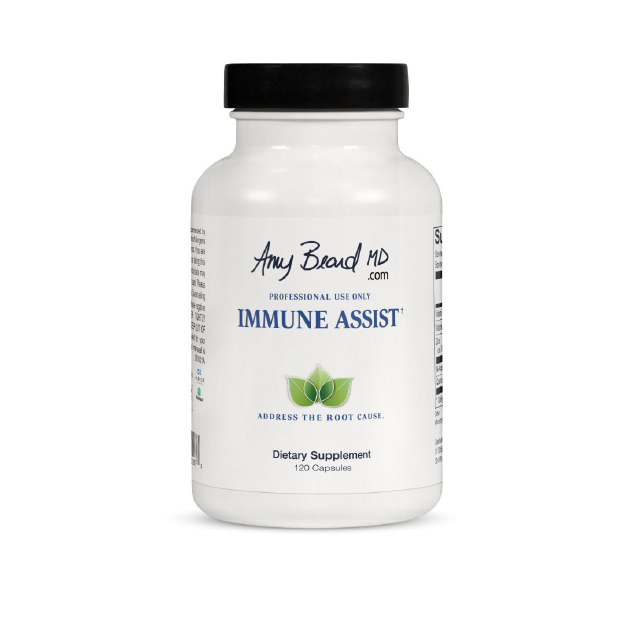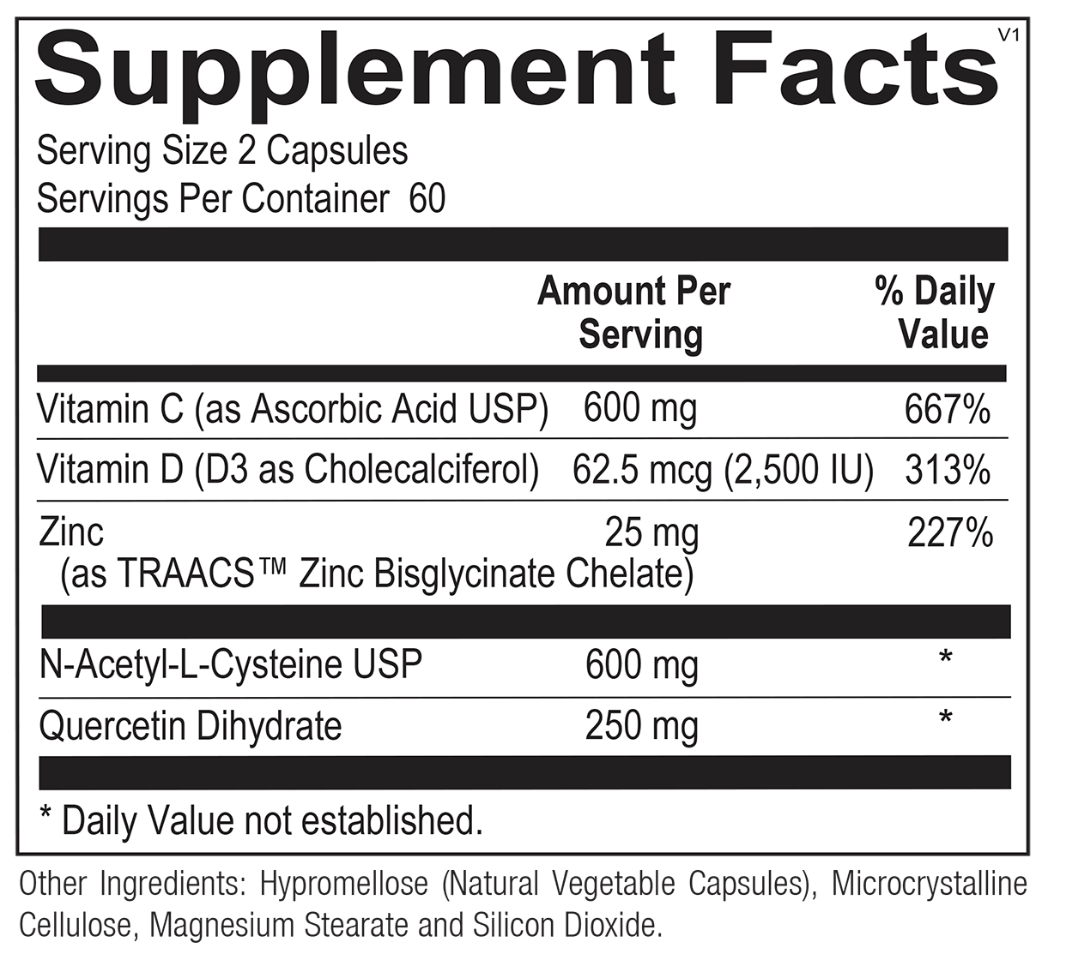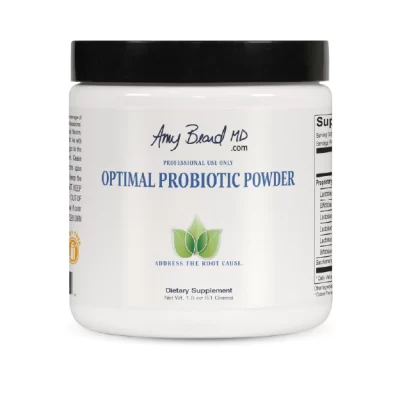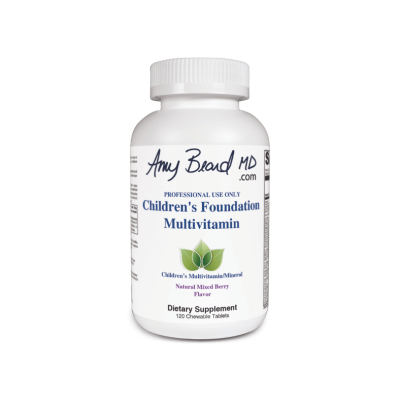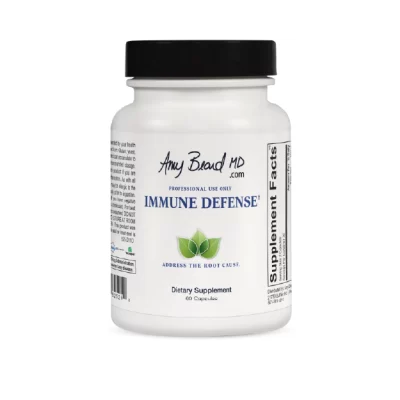Description
Key Benefits
- Broad-Spectrum Support for Healthy Immune Function
- Support Healthy Respiratory Function
- Maintains Normal Inflammatory Balance
How it Works
Quercetin
Quercetin is best known for its antioxidant activity in scavenging free radicals. Additionally, quercetin helps balance the level of cytokines and improve T-lymphocyte balance. Several mechanism studies highlight quercetin’s ability to provide immune system support while also stimulating the ciliary beat frequency of the nasal epithelium, aiding the excretion of respiratory mucus. Quercetin has been shown to block the mechanisms by which microbes enter the host cells and replicate within the body. Additionally, a human clinical trial found quercetin supplementation supported healthy respiratory function following a stressor (i.e., intense bout of exercise), compared to placebo.
N-Acetyl Cysteine
N-acetyl cysteine (NAC) is the precursor of the master antioxidant, glutathione. NAC has been shown to support mucus clearance and normal respiratory function, through its ability to cleave disulfide bonds in mucus. NAC is found to raise glutathione levels, which is important to protect the biologic activity and safe metabolism of quercetin. Along with protecting the activity of quercetin, NAC supports all detoxification pathways and helps maintain immune balance by supporting glutathione levels.
Zinc
Zinc is essential for maintaining immune system integrity and healthy immune development. Supplementation with zinc supports key immune functions such as natural killer cell activity and phagocytosis by macrophages and neutrophils. Furthermore, studies show that zinc can directly support the body during immune system challenges and can help support healthy respiratory function.
Vitamin D3
It has been shown that low vitamin D levels have immunologic implications with a significant decrease in immune function, affecting respiratory health. This is most likely because the vitamin D receptor is expressed by several immune cells including monocytes, macrophages, dendritic cells, B and T cells. Supplementation with vitamin D has been shown to modulate NK cell activity to promote a healthy innate immune response. Along with these immune-supporting benefits, vitamin D has also been shown to support the respiratory system and epithelial tight junction integrity.
Vitamin C
Vitamin C is a potent antioxidant that has been studied for many years for its immune-supporting effects. Through its antioxidant functions, vitamin C has been shown to protect important immune cells from oxidative damage. Data shows vitamin C is heavily concentrated in macrophages, supports lymphocyte activity, modulates cytokine release, improves endothelial function, restores mitochondrial function, and can directly support a challenged immune system. Of particular interest, vitamin C has been shown to recycle oxidized quercetin back to its parent compound, which supports a robust immune response while increasing the efficacy of quercetin.
Directions
2 capsules per day or as recommended by your health care professional.
Does Not Contain:
Gluten, yeast, soy, corn, artificial flavors and colors.
